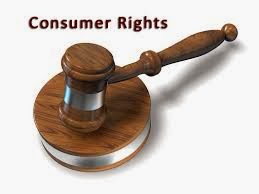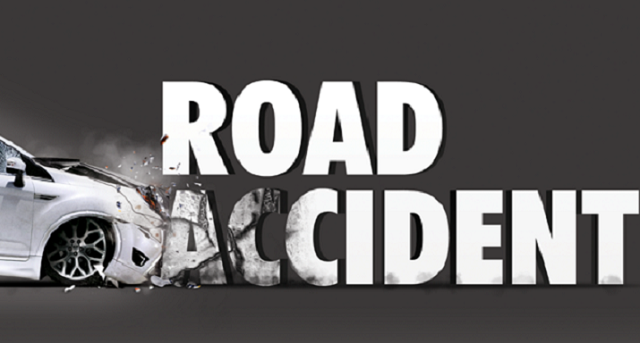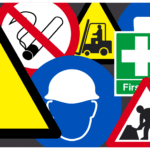Personal Legal
Sectional Title: Who is liable for all structural repairs?
Sectional titles or town houses, as they are affectionately known, have become the “go to” for first time home buyers as they are structured, safe, secured and cost a lot less than standalone houses. However, what happens if there are structural damages to the property? Who will be responsible for fixing these? In this article we tackle these questions.
Sectional title units are governed by body corporates in terms of the Sectional Title Schemes Management Act 8 of 2011 (“the Act”). Section 3 (1) of the Act provides that a body corporate must perform the functions entrusted to it by or under this Act or the rules, and such functions include the duty to maintain all the common property and to keep it in a state of good and serviceable repair.
What qualifies as common property?
Section 1 of the Act defines common property, and in relation to a scheme, as:
(a) The land included in the scheme;
(b) Such parts of the building or buildings as are not included in a section; and
(c) Land referred to in section 5(1) (d).
In layman’s terms this would mean anything from the structural foundation of sectional title scheme to the common pool. The body corporate is therefore liable for all structural damage to the common property.
According to StraussDaly (in an article published on the 27/11/2017), if the damage is caused by subsidence of the structural foundation, the insurance cover issued to the body corporate should solve the problem.
What recourse does an owner have against the body corporate that refuses/ fails to fix damages to the common property?
The owner can refer the dispute to the Community Schemes Ombudsman Services (CSOS). The Ombudsman is regulated by The Community Ombudsman’s Act 9 of 2011. CSOS deals with a range of disputes, including:
- Financial issues such as the correction of unreasonable contributions;
- Behavioral issues such as the removal of pets;
- Scheme governance issues such as confirming that scheme governance provisions are invalid;
- Disputes relating to meetings and resolutions such as the requirement that a scheme hold a meeting;
- Management services, such as the appointment of an executive managing agent;
- Physical works, such as the carrying out of repairs; and
- General or other issues, such as access to information
This is not an exhaustive list and adjudicators may make whatever order they deem necessary.
In terms of Section 48 of the CSOS Act, adjudication orders are enforceable just as the Magistrate Court or High Court orders depending on the quantum or nature of relief granted in the determination.
Tips:
- Before purchasing a home have your legal provider explain to you what your obligations will be towards your new home and the obligations of the body corporate
- If there is a valid claim speak to your legal services provider as quickly as you possibly so that they may help you refer your claim to the CSOS.
What are your rights when a retailer displays two different prices on an item?
So it’s Sunday I am walking down an isle at a certain shop when I notice an argument between a man and one of the shop attendants. Upon closer inspection I hear the shop attendant trying to explain that the price displayed is incorrect and that the price of the object in question has increased. As a consumer I was curious as to what the law says in this regard. Is the retailer actually obliged to sell me an item for the price displayed and giving me a deal of a lifetime or can they rectify this and I have to pay the correct price?
What does the law say?
In terms of section 23 of the Consumer Protection Act 68 of 2008 (CPA) where a supplier has displayed two different prices on an item, a consumer has a right to demand to pay the lowest of the two prices. If there is an error on the price, the supplier cannot insist that the consumer pay a higher price for the goods or services than the one displayed.
However, the exception to this rule is if the price contains an unintentional and obvious error, a consumer cannot hold the supplier to that price if the supplier:
- corrects the error on the displayed price, and
- Takes reasonable steps to inform the consumer of the error and the new corrected price.
The CPA does not define what those reasonable steps might be. Suppliers will also not be bound to a displayed price if that price has been altered or tampered with by an unauthorized party.
According the CPA the general principle is that a supplier cannot display goods for sale without displaying a price in relation to those goods. The exception to this rule is if the goods in question are being predominately used as a form of advertisement.
If more than one price is displayed, the consumer is not required to pay the higher of the two prices displayed. However, this does not apply if a new price fully covers an old price.
What happens if the Retailer purposely advertises the wrong price to draw consumers?
This is called bait marketing, and it’s a no-no in terms of the CPA. The CPA does give retailers an “out” in terms of honoring prices which are obvious mistakes as mentioned above.
What if I find the same item at a different store for a much lesser price, can I take the item back to the store where I bought it?
Yes you can take it back. There are a number of sections in the CPA that allow goods to be returned, but it is important to note that there is no general right of return.
Tips:
- If you not happy with how the store handled your issue, you can speak to your legal insurance provider about the option of referring your matter to the Consumer Goods and Services Ombudsman.
Illegal electricity connections, whose responsibility is it to pay the bill?
What happens when a tenant connects electricity illegally, who is responsible for paying the electricity bill? In this article we tackle this issue.
What does the law say?
Property owners who let out their properties are ultimately responsible for all bills associated with the said property. The law states that property owners are responsible for all charges incurred in connection with the property, this includes deemed consumption fees for unlawful use and meter tampering fees.
If a tenant has connected the electricity illegally, what recourse do I have as an owner?
The owner can report the matter to the police station and lay a charge of electricity theft/illegal connection against the tenant. The owner will then have to get an independent contractor to confirm that the meter has been falsified and there was an illegal connection on the property. The municipality will investigate the issue and determine who is responsible for the charges. If they can prove that the electricity charges are as a result of the illegal electricity theft then the owner will not be held liable. The owner bears the onus of proving this.
Another recourse available to the owner is to evict the tenant and claim the charges from the tenant that may have accrued as a result of the illegal connection.
Consequences of allowing an illegal connection in your property
Firstly, criminal charges can be brought against the person who tampers with the meter, which is illegal in itself. For instance, the Johannesburg municipality bylaws state that any person who contravenes or fails to comply with legislation shall be guilty of a criminal offence and upon conviction, be liable for a fine of up to R2 000 or six months’ imprisonment.
Secondly, Eskom has called for illegal connections to be added to the Criminal Matters Amendment Bill if this succeeds you could see the culprits being detained for a period of not more than 30 years and or a fine of R 60 000.00.
Further, owners need to prove that they have taken reasonable steps to know what is happening in their properties. If they fail to do this they may be charged with being an accessory to a crime.
Tips:
- If you have had to pay a large amount of money because of a former tenant’s illegal actions of connecting electricity illegally you as the owner have the right to sue and get your money back
- Speak to a lawyer or your legal insurance provider about how you can go about recovering your money back.
- Speak to the municipality or in the case of a sectional title your complex’s property management company about being copied on all emails relating to payment of utilities.
Medical aid scheme that refuses to pay for procedures
Your recourse to medical aid scheme that refuses to pay for procedures covered by the medical aid
As a medical aid member you rely on your medical aid to come to your rescue when you have medical problems, but what happens when your medical aid refuses to pay for essential medical care. Can they refuse to pay for your medical care, if so, can they do so without a valid reason and what recourse do you have?
Is my medical scheme obliged by law to provide cover for certain medical conditions?
Yes, these are known as Prescribed Minimum Benefits (PMBs). They were introduced into the Medical Schemes Act to ensure that beneficiaries of medical schemes would not run out of benefits for certain conditions and find themselves forced to go to State hospitals for treatment. These PMBs cover a wide range of ±270 conditions, such as meningitis, various cancers, menopausal management, cardiac treatment etc, including medical emergencies. However, take note that certain limitations could apply, such as the use of a designated service provider and specified treatment standards.
When can a medical aid rightfully refuse to pay for medical procedures?
There are two situations where medical aids may refuse to cover treatment:
- The treatment may be non-essential meaning that it is either not a treatment that has conclusively been proven to be beneficial or it is a treatment that does not affect one’s health and lifespan.
- The medical expenses for the illness in question are a pre-existing condition and the stipulated waiting period is not over.
What recourse does a medical aid member have if the medical aid wrongfully refuse to provide cover?
Medical aid policies are not infallible and sometimes refusal to cover treatment may be seen as being unfair. When misunderstandings or differences of opinions arise, medical aid members can take further action.
The first option for recourse is to discuss the matter with your medical doctor. In certain cases, a medical aid may reconsider covering the treatment in question if a medical doctor can provide valid reasons as to why the treatment is necessary. You can collect a motivation letter from your doctor and send it through to the scheme. Their medical panel will then reconsider the decision.
Should you need to take it further then you can speak to the council of medical schemes, the authoritative body that regulates the operations of all medical aids in South Africa. This is not applicable to membership with hospital cash back plans and other medical insurance policies. In these cases, all questions and complaints have to be directed to the insurance ombudsman. People with legal insurance have the option of referring their matters to their insurance companies and letting them run with the matter until finalization.
Tips:
- Approach or have your representative approach the medical aid scheme before escalating your matter to the Council;
- If you have not received acknowledgement of your complaint within 3 days follow up;
- You are entitled to a response within 120 days.
Debt Counselling
Recent stats show from Debt Rescue and Statistics SA show that South Africans spend 75% of their salaries on paying debt and in addition, a debt industry survey showed that 51% of the participating respondents were unable to meet their minimum debt repayment requirements every month. This is no wonder why a lot of South Africans are under debt counselling. Most people are however, unsure what debt counselling is and what it means to be under debt counselling, in this article we address exactly that.
What is debt counselling?
The concept of debt counselling was first introduced in 2007 by the National Credit Act (the NCA). This is a regulated process whereby a debt counsellor negotiates, on your behalf, with all your creditors, to have the terms of each credit agreement extended and the installment reduced. A person that facilitates this process is known as a debt counsellor. Debt counsellors are registered and regulated by the National Credit Regulator.
Who may qualify for debt counselling?
The general rule is that anyone can apply for debt counselling, but not everyone will qualify. To qualify for debt counselling, you need to be over indebted as defined by the NCA that is you are unable to meet all your financial obligations in a timely manner. This means that a creditor is unable to repay the minimum monthly installments. If the debt counsellor does not think you are over indebted you will not be put under debt counselling. A court can also place a creditor under debt counselling upon application by the creditor if they have been rejected by a debt counsellor. This is usually the case where a debt counsellor feels that the debtor is not over indebted but the debtor feels that they are.
Are there costs associated with debt counselling?
Unfortunately like most things, debt counselling is not free. Luckily debt counsellor’s fees are regulated by the NCR. The fees may include the following:
- application fees
- rejection fee (yes they charge you for rejecting your application)
- Debt counsellor’s fees
- After care fees
Are all debts included in the process?
The answer to this is no. If legal action was already instituted by the time you submit your application that debt may be excluded.
Can I get more credit?
In terms of the NCA, credit providers are prohibited from lending to consumers while they are in debt counselling, unless the loan is a consolidation loan and does not result in greater indebtedness.
What if my debt counselor neglects my matter?
You can refer your matter to the Credits Ombudsman .
Tips:
- If you have no income debt counselling might not be a great idea.
- The creditors reserve the right to take legal action against you
- If there are any legal fees associated with this process, the debt counsellor needs to bring this to your attention
- If the counsellor fails to submit your proposal to the creditors or refer your matter to the National Consumer Tribunal or court within 60 days you are entitled to a total refund of all the fees you have paid
- You need to note that if you fall behind on any of your repayments you will be liable for the principal debt, interest and collection fees.
Consumer Protection Act ? When can i return my purchase?
So you just bought your first car and are very excited about showing it off and all the potential new experiences that you’re going to have. You get home and you notice that it does drive as smoothly as you were lead to believe by the sales man. In a state of panic you ask yourself can I take it back.
Cooling off period
The Consumer protection Act makes provision for a cooling off period in South African law. The main objective of this period is to protect consumers from making rash decisions and being forced to live with them. The law therefore provides consumers with the right to a cooling-off period which usually runs for a certain number of days after conclusion of an agreement allowing the consumer to cancel the agreement or contract.
Section 16 of the above mentioned Act allows consumers to rescind a transaction resulting from any direct marketing without reason or penalty. The consumer needs to give notice to the supplier in writing or any other recorded form within 5 business days after the date on which the transaction or agreement was concluded or the goods were delivered.
A supplier must then refund any payments received from the consumer in terms of the agreement within 15 days after he/she has received the notice of cancellation to the consumer and the consumer must return any or all goods (in this case a car) received from the supplier to the supplier.
Does the cooling off period only apply to deliverable good?
The simple answer to the above question is no, the regulations of the Act apply to tractions such as franchise agreements, purchase of immovable property in terms of the Alienation of Land Act, 68 of 1981 etc.
What happens if I only realise that the goods are defective after the cooling off period?
Section 56 of the Act addresses the issue of an implied warrant of quality. Subsection (2) of this section states that within six (6) months after the delivery of any goods to a consumer, the consumer may return the goods to the supplier, without penalty and at the supplier’s risk and expense, if the goods fail to satisfy the requirements and standards contemplated in section 55 and the supplier must, at the direction of the consumer either repair or replace the failed, unsafe or defective goods or be refunded the price paid by the consumer for the goods.
Tips:
- If you notice anything wrong with any recent purchase immediately bring same to the attention your attorney (or insurance for those with legal insurance) and the supplier. Contrary to popular belief it will not work any better after giving it a few days.
Disclaimer: this is general advice and should not be relied upon solely. Speak to a legal professional for further information
Road Accident Fund! What should I Know?
Road accidents are an unfortunate part of our everyday lives .This becomes an even bigger tragedy where the accident results in serious injuries or even fatalities. Although accidents cannot always be avoided, you can get compensation in the event that you are involved in one. In South Africa a fund was established in terms of the Road Accident Fund Act of 1996 to address matters relating to road accidents, the rules relating to same and compensation .In this article we try and shed some light to what the Road Accident Fund is, when you are legible for compensation and very importantly how one can actually apply.
What is the Road accident Fund?
The RAF is a publicly accessible fund set up to provide monetary compensation to those who have suffered injuries as a result of an accident on public roads. The RAF pays monetary compensation for damages incurred, including medical, legal and loss of income costs.
Who is legible for compensation?
- Any person involved in a road accident that was not their sole doing, may apply for compensationfrom the RAF, this includes claims resulting from injuries to claiming on behalf of the deceased
- Drivers (excluding the driver who caused the accident), passengers and pedestrians involved in the accident.
- If you were the driver in the accident but are not the owner of the car and the accident was caused by the owner’s negligence (for example, if they didn’t fix the brakes) and you are injured, then you can claim from the fund.
- A child, spouse or other person who depended on the income of the person who died in the accident.
- A close relative of the dead person who paid for the funeral.
- A claimant under the age of 18 years must be assisted by a parent or legal guardian.
When can you not claim?
- A person who caused the accident cannot claim from the fund. There is only a claim if the accident was caused by someone else’s negligent driving.
- You cannot claim if you were the only person and vehicle involved in the accident.
What can you claim for?
You may apply for compensation for the costs of the medical expenses, funeral expenses, Compensation for pain and suffering, lost earnings if you are unable to work and loss of support if the main income provider is killed in an accident. Similarly if the injuries are serious enough to prohibit you from earning an income, you may claim compensation for loss of future income.

Process of claiming
You can claim from the Fund yourself (this is however largely inadvisable) or you can get a lawyer to claim for you but you will have to pay for their services. The common practice is that attorneys that take on RAF matters usually do so on a contingency agreement basis. This means that the lawyer’s fees, sometimes including disbursements, will be paid upon finalisation of the matter.
Prescription
- Prescription against minors will only commence once they reach the age of 18 years and will be completed three (3) years after attaining majority.
- In the case of identified claims(i.e. whether the driver is known) the claim of a third party prescribes after three (3) years
- Hit-and run claims prescribe after two(2) years
Tips:
- Contingency agreements are regulated by the Contingency Fees Act .One of the important provisions of this Act is that an attorney can charge his normal fee or a higher fee as specified in your agreement but may not exceed the attorney’s fee by 100% or may not exceed 25% of the total amount awarded by the court to the client. Make sure that the agreement between you and your attorney adheres to this rule.
- If you as the driver were the sole reason behind the accident you will not be compensated so drive carefully.
- Knowledge of who the driver (or the lack there of ) is irrelevant , meaning you can claim whether or not you know who the driver of the accident is
- In a bid to prevent corruption and fraud, the RAF whittled their payout packages to under R 50 000 for serious injuries. The RAF most commonly compensates claimants in amounts equal to previous payouts in similar cases.
- Please note that this is general advice and that a professional should be consulted before proceeding with a claim
Traffic Fines! Should i pay?
If you are a driver on any of the South African roads you probably have had a run in (and frustration) with the road traffic authorities and if you are really unfortunate, you may even have been fined. This article seeks to explain exactly what road fines are and what your options are in the event that you wish to contest one.
What are traffic fines?
A traffic fine is issued upon violation of road rules. There are two types of legislation that is applicable to road rules violations i.e. the Criminal Procedure Act (CPA) which is applicable nationwide and The Administrative Adjudication of Road Traffic Offences Act (AARTO) which is only applicable to Johannesburg and Tshwane. There are two types of notices that you may receive as a result of these violations that is a Section 56 notices, these are issued where an enforcement officer physically witnessed the transgression. A section 56 notices has an option of a fine, which if not paid is automatically, written notice to appear in court on a date stipulated on the fine. A section 341 notice is issued in circumstances where it is not evident who the driver is.
What are your rights?
In terms of section 35 of the Constitution every accused person is presumed innocent until proven guilty .This means that fines can also be contested.
What steps can I take to contest a fine?
In the unfortunate event that you are fined there are different procedures to follow:
In terms of S 341 (that is when you receive a traffic fine but summons have not been issued)
- You can write a letter to the traffic department contesting the notice and attach the compounding notice (with the compounding notice number) to the letter and an affidavit. In the letter you need to set out why you wish to contest the notice and whether you would like to have the fine cancelled or motivate for a reduced fine .The traffic department may respond (this is however very uncommon). If your presentation is successful your fine will either be cancelled or reduced. It is common practice for the department to reduce the fine instead of cancelling it. If you are unsuccessful you will receive summons and then the formal court procedures will have to be followed and you will obviously have to instruct an attorney.
In the case of S 56 notice (that is when the identity of the driver is known and summons have been issued) the process is as follows:
- Upon receiving your summons you can write to or approach the prosecutor at the magistrate’s court with the original summons or notice. If you decide to write a letter, attach a copy of the summons (keep the original safe) .The letter needs to be accompanied by an affidavit. The prosecutor will then have to respond (again this is not very common).If your presentation is unsuccessful summons will obviously be withdrawn or the fine will be reduced. If your presentation is not successful you will have to appear in court (preferably with an attorney) if you do not pay the admission of guilt fine.
LegalTips:
- If you pay an admission of guilt fine on the compounding notice (prior to the summons being issued) you will not incur a criminal record.
- If you pay the admission of guilt fine (after receipt of the summons) or are found guilty in court you will have a criminal record.
- If you receive summons in terms of Section 56 you need to respond to them immediately or at least speak to either an attorney or the magistrate’s court prosecutor. Failure to take action in this regard may result in a warrant of arrest being issued against you.
- If you are a driver it might be a good idea to get legal insurance to avoid hefty legal costs in the event of your run in with the authorities
Let’s talk retirement!
It was recently reported on news 24 that a pension fund administrator working for Anglo Platinum employees has lost R 225m worth of mine provident fund workers money. We thought it might be a good idea to share some insight on the subject particularly what a retirement fund is, how it differs for pension and provident fund, what are the responsibilities of the members (employees) and the employer.
Retirement Fund
This is a fund set up by an administrator, asset manager or insurer for the benefit of individual investors. The objective is to provide regular income to the members upon retirement or to provide a lump sum benefits to dependants of such members upon the member’s death.
Pension Fund
A pension fund is set up by the employer for the benefit of its employees. The objective is to provide pensions to the members (employees) upon retirement. A pension benefit may include other things such as death or a disability benefits.
Provident fund
A provident fund is set up by an employer for the benefits of its employees. The objective is to provide a cash lump sum benefit to its members (employees) upon retirement. It is the member’s a choice on how they wish to use their lump sum upon retirement.
Employer’s obligations
It needs to be noted that there is no obligation on the employer to establish employee benefits schemes but employers usually do so for the following reasons:
- A moral duty, unfortunately the grants provided by the state is never enough to retire on establishing the fund helps employees save for retirement.
- Establishment of the fund also releases an employer from having to provide financial assistance once an employee dies or retires.
- There are also tax benefits provided by the State on contributions made by the employer.
- The retirement benefits also help the employer attract and retain staff.
Exit options
When a person retires from a pension fund or retirement fund they are compelled by law to take a minimum of two thirds of the entire retirement benefit value as a compulsory pension / annuity. This is then paid to them as regular pension until they die. If the fund does not pay pension directly they can purchase an annuity from a long term insurance company.
Does inflation affect your retirement?
The simple answer to this is yes it does. The question that then arises is how do you then ensure that your payout lasts as long as you do? Once a year, as a member, you will receive a benefits statement, a benefits statement basically gives a detailed account on where you are as far as the fund is concerned .The onus is on the member to review this statement carefully and make the necessary adjustments where necessary like investing extra money while you still working .
Here are a few tips to be noted on the above mentioned funds:
- Get advice from a professional financial advisor before choosing a financial product
- Take your responsibilities and needs into account
- Invest for long term and treat recommendations to change your investment portfolio with caution
- Invest in quality (always get professional advice)
- Don’t swap investments unnecessarily as you may lose some money in the process
- Start investing and saving for your retirement whilst you are young
- Stick to the basics
- Watch out for people who claim to be investment gurus
- Take responsibility of your investments
IDENTITY THEFT
Following a case recently reported by Bizcommunity on the 16th of March 2017, where an applicant lodged an application to have a sale of property cancelled based on the fact that her identity had been stolen.
The applicant alleges that the person who stole her identity sold her property to a third party. The third has subsequently registered the property in his own name has moved into the property claiming that they acquired the property from the rightful owner as proof of ownership was produced by the seller before acquisition of such property. The applicant insists that she had never intended to sell the property and that this is a case of identity theft. This matter is still pending at the High Court in Pretoria.
It may come as a surprise that this is even possible taking into accounts how many hoops one has to jump through to get a housing loan and subsequently have the property registered in their name at the deeds registration office. The sad reality is that no one is immune from identity theft and this is the reason why we thought we might highlight a few precautionary measures to be taken to avoid same.
According to the South African Fraud Prevention Service (SAFPS) the following tips may assist you from becoming a victim of identity fraud:
- Shred all documents that contain your personal information and do not throw anything away that someone else could use to impersonate you;
- Always remain attentive at ATM’s and ensure that no one is attempting to gain access to your pin;
- Never respond to an email or sms that asks you to insert or update your personal banking details by clicking on a website link, rather copy and paste the link to your internet browser , as this will enable you to determine whether you are accessing an authentic website or not ;
- Be very selective with the type of information you share on social media and make use of the privacy settings and ;
- Only carry identification documentation such as your passport or identity book when it’s absolutely necessary and keep these documents safely locked away.
In the event that you have been a victim, SAFPS suggests the following steps:
- If you receive a call or sms from a bank or any other credit provider about a credit that you have applied for investigate same immediately (this can be as simple as calling the said bank or credit provider to get further information)
- The victim will be required to prove his innocence to the credit provider by producing the necessary information, evidence and personal documents to prove true identity.
- The victim needs to report the matter to the SAPS and open a case of identity fraud and report the matter to all the relevant companies
- SAFPS offers identity protection services , an individual needs to request a Protective Registration Application form fill it in and send it back to SAFPS will the letter from the company where he was impersonated.
- The SAFPS will process the application. The victim’s ID number will be stored on the SAFPS database to alert companies that the individual has been a victim of identity fraud ,so they can take extra precautions to ensure that they are dealing with the right person














